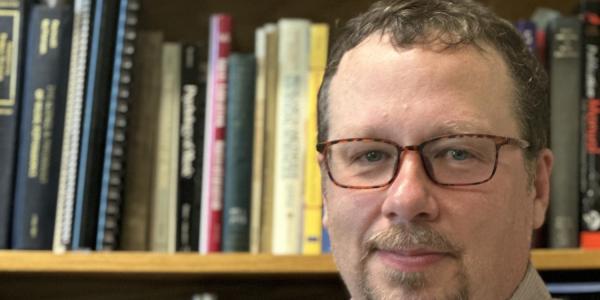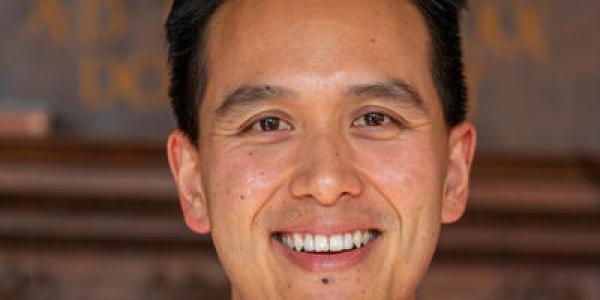 Professor of Composition + Entrepreneurship Center for Music Director Jeffrey Nytch.
Professor of Composition + Entrepreneurship Center for Music Director Jeffrey Nytch.As a MacDowell Fellow this fall, Nytch will tackle his next project—a concerto for his longtime friend James Rodgers, principal contrabassoonist for the Pittsburgh Symphony.
“My piece will celebrate the history and legacy of the steel workers and worker organizations who spearheaded the birth of America’s labor movement,” says Nytch. “It’s the human element I’m most interested in—these workers tended to be recent immigrants with little or no formal education, yet they quite literally built 20th-century America.
“That’s a history that I think is worth remembering today … and Pittsburgh is the place to do it. It’s incredible how much history of the labor movement unfolded there.”
He continues, “The early labor movement was marked by incredible violence, as well as heroism on the part of workers and their families. When I think about them, the phrase ‘gritty nobility’ comes to mind—put another way, ordinary people doing the extraordinary. That’s exactly how I would also describe the tone of the contrabassoon—earthy, sometimes unrefined, but also capable of great lyricism and beauty.”
The lower version of its better-known cousin, the bassoon, the contrabassoon is generally known as a supporting instrument for the bass section of the orchestra. As such, there’s little solo literature for the instrument and only a handful rarely-performed concertos. According to Nytch, “In addition to writing a piece that will tell an important story, it’s my hope that it will be a significant contribution to the woodwind repertoire.”
Nytch will be on sabbatical leave for the 2023-2024 academic year, during which he’ll advance his entrepreneurial/artistic pursuits, including the MacDowell residency and composing the contrabassoon concerto.
“This is truly a lifelong dream,” he says of the MacDowell Fellowship. To date, MacDowell Fellows have won 97 Pulitzer Prizes, 868 Guggenheim Fellowships, 117 Rome Prizes, 33 National Book Awards, 31 Tony Awards, 33 MacArthur Fellowships, 15 Grammys, nine Oscars and eight National Medals of the Arts.




